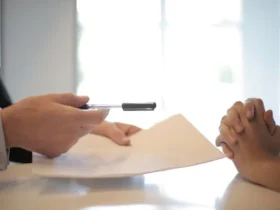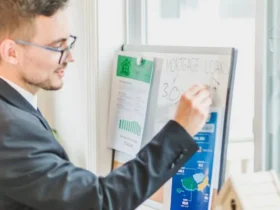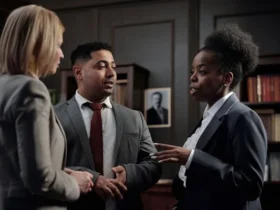Maryland Car Dealer, Nonprofit Partner to Donate Cars to Local Veterans
In a powerful act of community support, a Maryland car dealership is partnering with a local nonprofit to donate vehicles to veterans in need, making a direct and lasting impact on the lives of those who served. This unique collaboration highlights how the private and nonprofit sectors can work together to address transportation insecurity among veterans, helping them regain independence, access jobs, and rebuild their lives after service.
As America continues to confront the complex challenges veterans face—ranging from housing instability to mental health issues—access to reliable transportation remains one of the most overlooked barriers. This initiative aims to change that narrative, one vehicle at a time.
1. The Story Behind the Partnership
The initiative was launched in early 2025 when Patriot Auto Group, a multi-location car dealer in Maryland, teamed up with Homefront Mobility, a Baltimore-based nonprofit dedicated to helping veterans overcome transportation hurdles.
Why This Partnership Matters
-
Patriot Auto Group brings the vehicles and maintenance expertise.
-
Homefront Mobility provides vetting, outreach, and logistics to match cars with deserving veterans.
-
Together, they ensure that each car donation is tailored, intentional, and impactful.
The partnership isn’t just about giving away cars—it’s about giving veterans a pathway back to stability, enabling them to attend medical appointments, reach job interviews, and reconnect with family.
2. Veterans and Transportation: A Hidden Struggle
According to a 2024 report by the U.S. Department of Veterans Affairs, nearly 34% of low-income veterans cite lack of reliable transportation as a barrier to employment, healthcare access, and housing stability. While public programs exist, waiting lists and coverage gaps remain significant.
Common Challenges Veterans Face:
-
Limited or no access to personal vehicles after transitioning from service.
-
Ineligibility or logistical issues with public transit options.
-
Physical or mental health conditions that make public transportation difficult.
This vehicle donation program seeks to fill that critical gap by providing safe, serviced, and fully registered vehicles—not just transportation, but renewed freedom.
3. How the Car Donation Program Works
The vehicle giveaway is structured to be transparent, needs-based, and scalable. Here’s a step-by-step look at how it functions:
Step 1: Vehicle Sourcing
Patriot Auto Group commits to donating:
-
Pre-owned vehicles in good condition from trade-ins or dealership inventory.
-
Vehicles returned at lease-end but still roadworthy.
-
Maintenance and minor repairs before delivery.
Step 2: Veteran Application and Selection
Homefront Mobility:
-
Opens a rolling application process to veterans in Maryland.
-
Prioritizes individuals based on transportation hardship, job readiness, medical needs, and family responsibilities.
-
Verifies service records and conducts interviews to assess need.
Step 3: Handoff and Support
Once selected, the veteran receives:
-
A clean title and registration, free of charge.
-
A gas gift card or transit credit for initial use.
-
Access to a one-year service plan provided by the dealership.
Each handoff is celebrated with a ceremony, often involving local officials, veteran advocates, and dealership staff—turning the moment into a community celebration of service and support.
4. Impact Stories: Veterans Behind the Wheel
Already, several Maryland veterans have benefited from the program. Here are two real stories that show the tangible impact:
Sergeant James “Jim” Carter, U.S. Army (Ret.)
After suffering a spinal injury in Afghanistan, Jim found it difficult to navigate Baltimore’s public transportation with his mobility challenges. Receiving a used Honda CR-V through the program gave him the ability to:
-
Attend weekly physical therapy.
-
Reconnect with his family in Hagerstown.
-
Volunteer with a local vet-to-vet mentoring program.
“It’s not just a car,” Jim said at the donation ceremony. “It’s a second chance.”
Specialist Angela Reyes, U.S. Army Reserve
Angela, a single mom and Army Reserve member, was commuting three hours round-trip to her job at a community health center using two buses and a shared ride. Her donated Toyota Corolla shaved her commute to 30 minutes and allowed her to enroll in night classes at a local college.
5. Why Car Donations Matter More Than Ever in 2025
The automotive and nonprofit landscapes in 2025 have created the perfect environment for impactful donation programs like this.
Rising Need Among Veterans
-
Post-pandemic economic challenges continue to impact housing, employment, and healthcare.
-
Veterans with disabilities or mental health challenges are particularly vulnerable to isolation and job loss.
-
Federal transportation subsidies for vets remain underfunded and inconsistent.
Tax and Environmental Incentives
-
Patriot Auto Group receives corporate tax benefits for each donation under IRS 501(c)(3) regulations.
-
Donated vehicles are reused and kept out of junkyards, supporting sustainability goals.
-
Community goodwill and positive PR support the dealership’s local brand and sales growth.
6. Expanding the Program Across Maryland
The pilot phase of the partnership has been so successful that both Patriot Auto Group and Homefront Mobility have announced plans to scale the program statewide by late 2025.
Key Expansion Goals:
-
Increase vehicle donations from 10 to 50+ vehicles per year.
-
Partner with additional dealerships and auto service shops.
-
Launch a public donation portal, allowing individuals to donate their used vehicles for veteran distribution.
With more community engagement, the program aims to serve at least 200 Maryland veterans by the end of 2026.
7. Community Response and Media Coverage
Local news outlets, veteran organizations, and Maryland residents have rallied behind the effort. The program has been featured on:
-
WBAL-TV Baltimore
-
The Baltimore Sun
-
Maryland Public Television (MPT)
Public sentiment has been overwhelmingly positive, with many social media users praising the initiative as a “model for national replication.”
Local government officials, including Governor Wes Moore, a veteran himself, have applauded the program. “This is what service after service looks like—neighbors helping neighbors in the most meaningful way,” Moore said during a press event.
8. How Marylanders Can Support the Effort
The program has opened new channels for public involvement. Whether you’re a veteran supporter, a local business, or a private citizen, there are multiple ways to contribute:
Ways to Get Involved:
-
Donate a used car through the Homefront Mobility website.
-
Sponsor a veteran’s vehicle insurance for six months.
-
Volunteer for transportation assistance programs and outreach.
-
Spread the word on social media using hashtags like #VetsOnWheels or #DriveForService.
9. The Broader Implications: A Blueprint for National Change
This Maryland-based program reflects a larger opportunity: leveraging dealership inventory and nonprofit coordination to replicate veteran-focused vehicle donations across the U.S.
By documenting their processes and creating an open-source playbook, Homefront Mobility and Patriot Auto Group hope to:
-
Inspire similar partnerships in Texas, Florida, California, and beyond.
-
Influence legislation supporting tax credits for veteran-focused auto donations.
-
Establish a national donor-recipient matching platform for vehicle distribution.
10. Final Thoughts: Driving Home the Mission
A vehicle is often taken for granted—just another item in a garage. But for veterans rebuilding their civilian lives, it can mean access, autonomy, and opportunity. This Maryland partnership reminds us that impactful giving doesn’t always require grand gestures. Sometimes, the key to change fits in the ignition of a donated car.
As the program grows and gains attention, its mission stays grounded in a simple but powerful truth: every mile matters when it’s driven with purpose.




Tuachie Maoni Yako